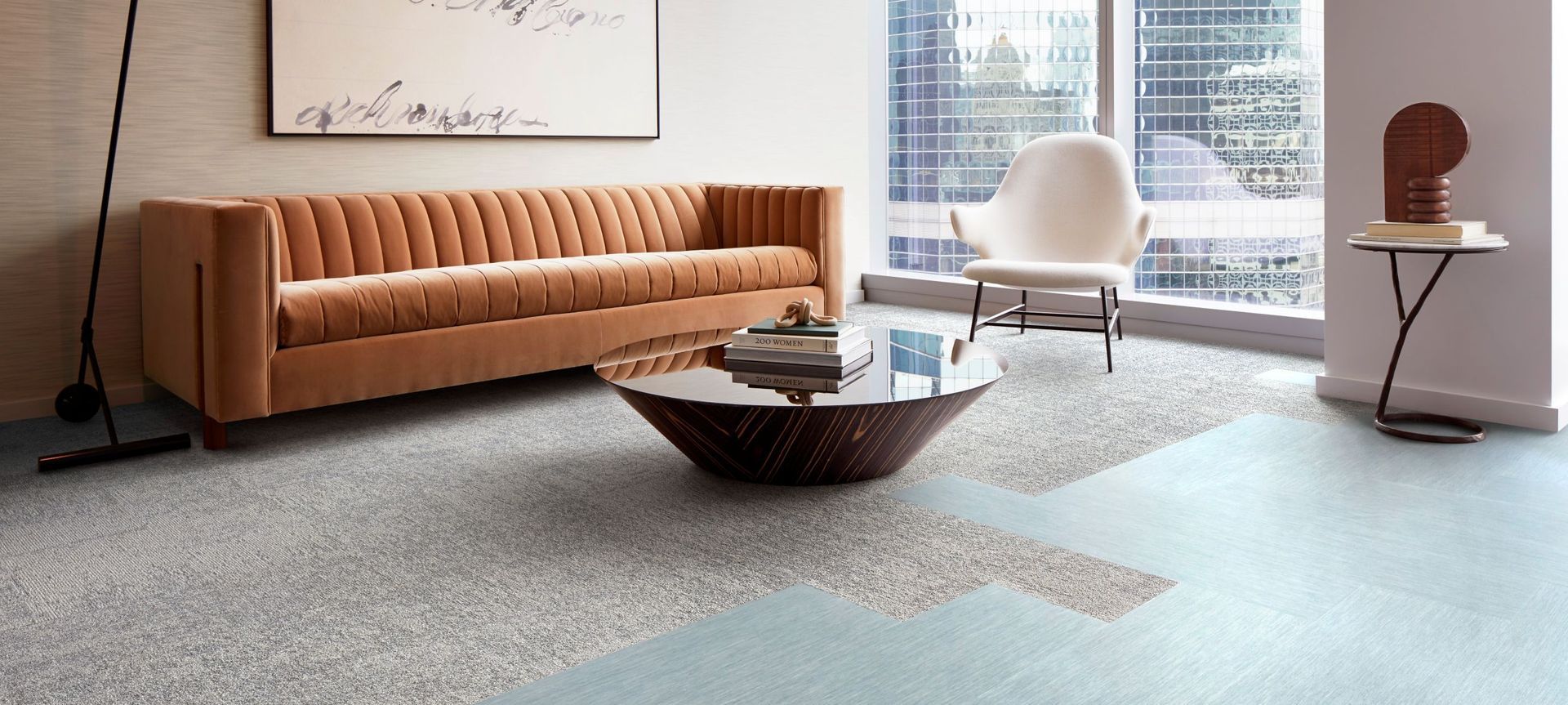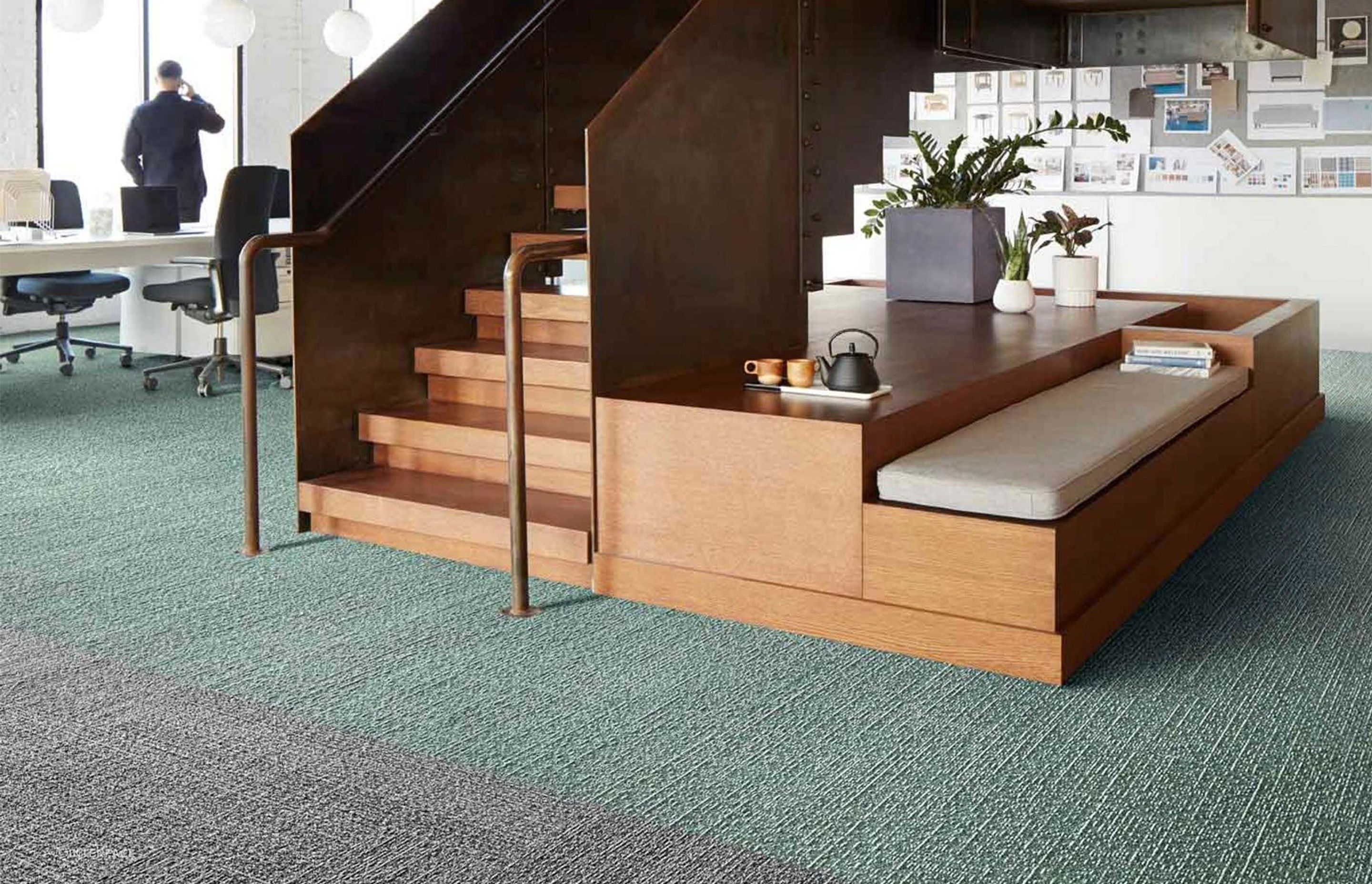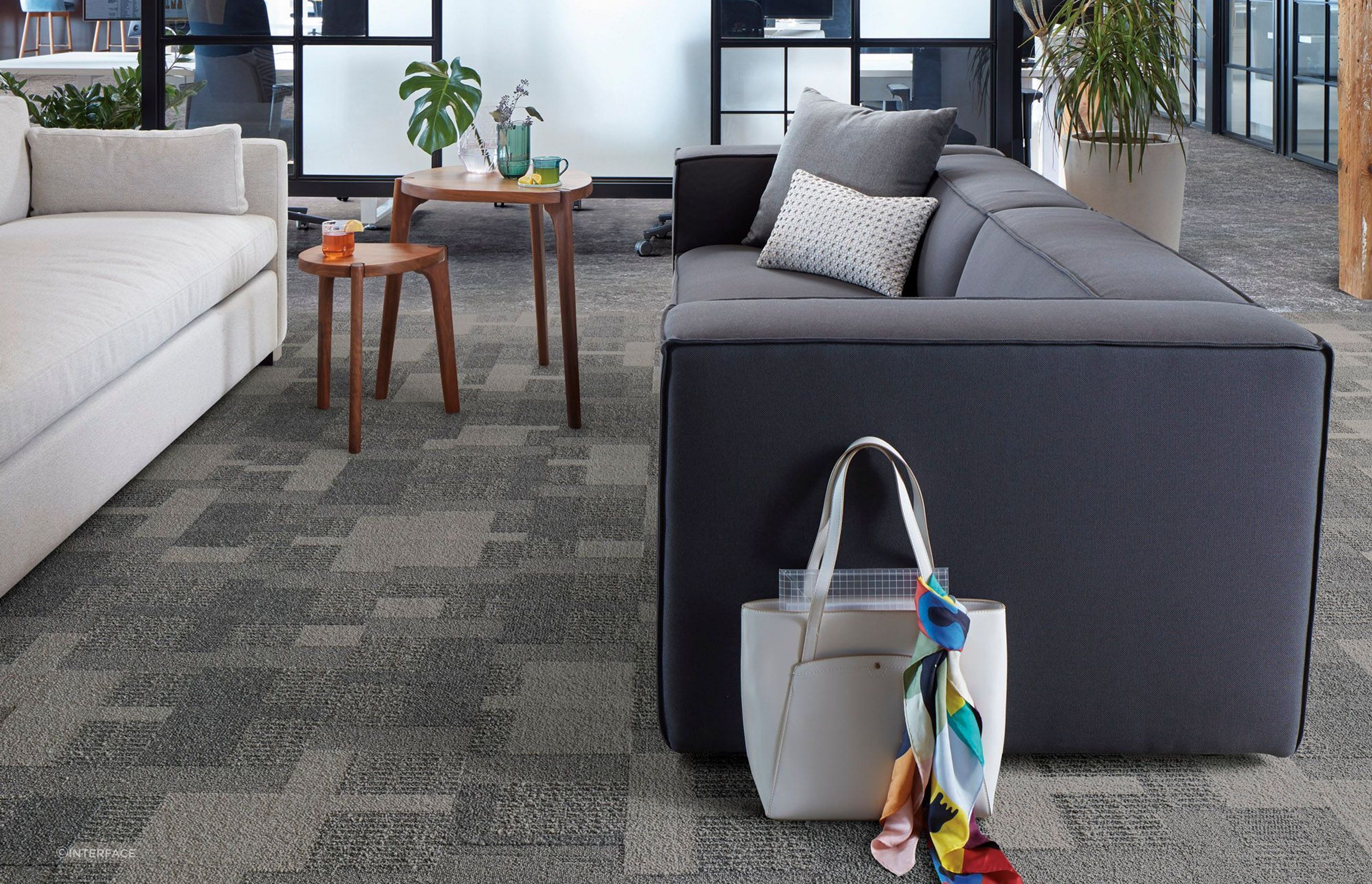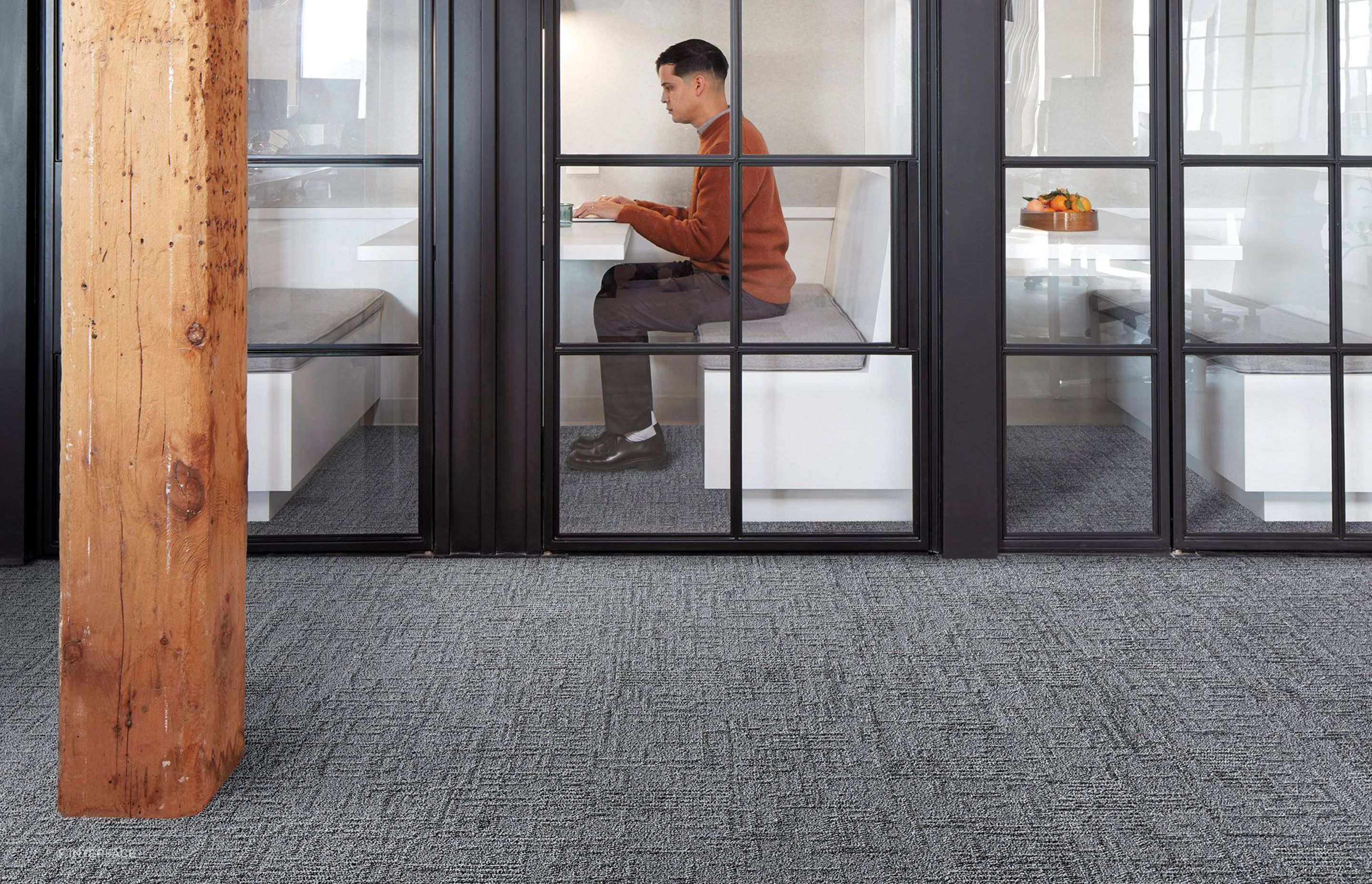The rise of sustainable flooring with carbon-negative carpet tiles
Written by
13 November 2023
•
4 min read

In the dynamic landscape of sustainable design, the flooring industry has witnessed a revolutionary shift towards eco-friendly solutions in commercial projects. As the world grapples with environmental challenges, architects, designers, and businesses are increasingly prioritising solutions that not only meet aesthetic and functional demands but also reduce their environmental impact.
Carbon-negative carpet tiles exemplify this commitment by not only reducing their carbon footprint but also actively removing carbon from the atmosphere. According to the International Energy Agency, “Becoming carbon negative requires a company, sector or country to remove more CO2 from the atmosphere than it emits.”
By specifying carbon-negative carpet tiles, architects and designers contribute to lowering the carbon footprints of the spaces they create without sacrificing form or function.

Interface has pioneered the use of responsibly sourced bio-based materials
Interface is a global manufacturer and supplier of the industry's lowest carbon footprint carpet tiles and resilient flooring, offering sustainable products for high-performing commercial spaces that support productivity and employee well-being.
"Our carbon-negative carpet tiles are designed for architects and designers who want to specify low-carbon products," says Interface Australia's Sustainability Manager, Aidan Mullan. "By replacing petrochemicals with innovative recycled and biobased materials, Interface has created a significant milestone, going beyond Net Zero to produce carbon-negative flooring solutions."
Its Climate Take Back mission, launched in 2016, works towards the goal of becoming a regenerative business and a carbon-negative enterprise by 2040. The company aims at eliminating the use of fossil fuel-derived materials, keeping these carbon-intensive materials to a minimum.
Guided by nature’s carbon-storing abilities and rethinking carbon as a resource, Interface has pioneered the use of responsibly sourced bio-based materials in its carpet tile backings. These bio-based materials use the power of nature to draw down atmospheric carbon and store carbon in a stable and durable form.
Sustainable designs: building a climate-resilient future

Carbon-negative carpet tile collection since 2021
In 2021, Interface launched its first carbon-negative collection of carpet tiles, called The Embodied Beauty.
The collection includes carbon-negative products in three distinctive styles: Shishu Stitch, Tokyo Texture and Zen Stitch, all featuring Interface’s CQuestBioX backing, an innovation launched in 2018. CQuest BioX combines bio-based, carbon-negative materials with high levels of recycled content.
Combining these materials with speciality yarns and tufting processes results in a carbon-negative product, measured on a lifecycle assessment from cradle to gate (from raw materials to manufacturing). In other words, at the point the carpet tile is ready to leave the factory.
Benefits of carbon-negative carpet tiles
Beyond their environmental impact, carbon-negative carpet tiles offer tangible benefits for workplace wellbeing and productivity. Their durability, ergonomic design and comfort contribute to a better working environment, enhancing focus and job satisfaction.
Lastly, carbon-negative carpet tiles contain 90 per cent recycled and bio-based content and support a circular economy, being fully recyclable, which ultimately benefits the planet.
Discover more of Interface’s projects

Corporate offices choose eco-friendly flooring
Large enterprises, such as Microsoft, Salesforce, MYOB and Nikon, count on Interface to reduce the carbon footprint in their corporate offices.
In 2022, Salesforce selected Interface products as the flooring standard for its global real estate portfolio. Since Salesforce integrated healthy and sustainable materials into its Global Design Standard, it has seen significant progress toward its sustainability goals. One of the biggest objectives in creating this standard was to address embodied carbon emissions. For finishing materials, Salesforce looked at emissions from cradle-to-gate or from raw material extraction through manufacturing. According to this case study, the company reported a 20 per cent reduction in embodied carbon from its baseline in part due to the very low embodied carbon value of the Interface carpet.
More from Interface on ArchiPro.
Climate Take Back™, The Embodied Beauty™, CQuest BioX™ and Carbon Neutral Floors™ are trademarks of Interface.
